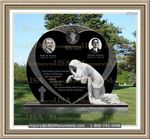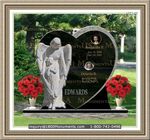|
What You Should Learn When Writing A Memorial Epitaph
There are a great number of details that must be attended to when setting up funeral arrangements. Unless someone plans ahead, these responsibilities are usually left to a trusted individual, or to multiple members of the deceased's family. Composing a fitting epitaph is just one of the many tasks that will need to be handled.
This is a brief statement or phrase, sometimes a poem or prose, that is inscribed on an individual's headstone or commemorative plaque. It says something about the person it represents. There are several different forms this tribute can take, mostly dependent on the deceased's personality, life choices and who is writing it.
There are some things that practically each grave marker will have in common. Nearly all will contain the person's full name and the dates that encompassed their life. Though a good many individual's choose to stop at just that basic information, others will opt to say a little extra by including statements, sentiments or personal remarks.
Traditionally, these inscriptions are short, touching sentiments stating what the individual meant to those who loved them or wishing them a peaceful rest. Sometimes they attest to what a loving spouse, parent, child or sibling they were, or mention their time in military service. Another popular choice is to use their favorite religious scripture.
A lot of people are choosing to design their own headstone. The primary benefit to this is that they can be sure that their last impression will be one they are comfortable leaving. It allows a bit of freedom, for example, for a person who was known for their sense of humor to be entertaining and witty with their final remarks.
Those who write their own might also like to use this as a platform to impart a last bit of wise advice to others. Often this involves encouraging people to be happy and live life well. One can be as creative as they wish with their final statement.
|
|



























